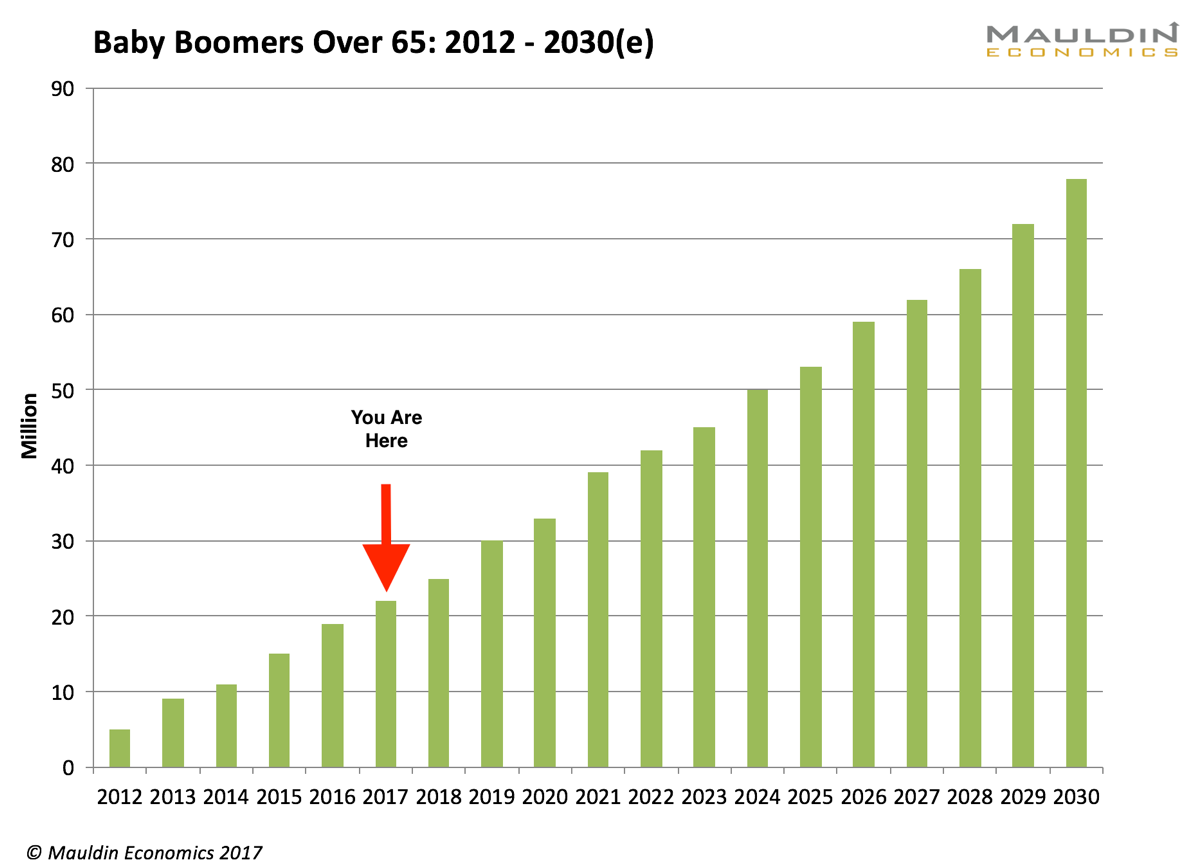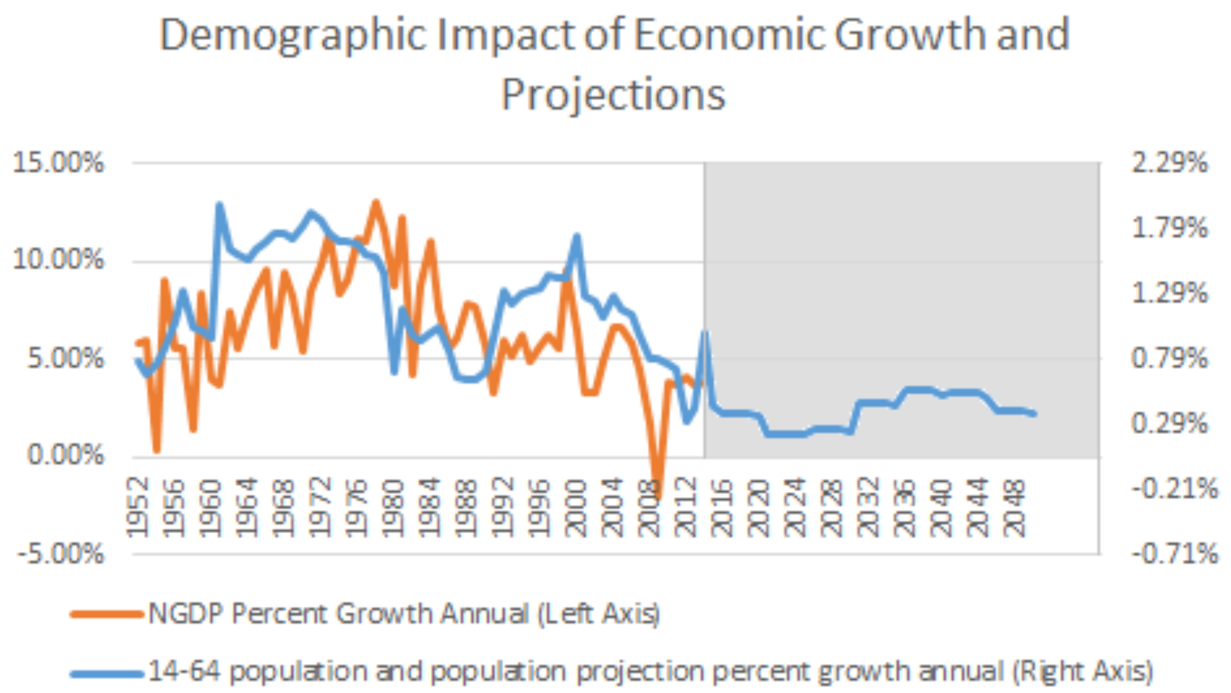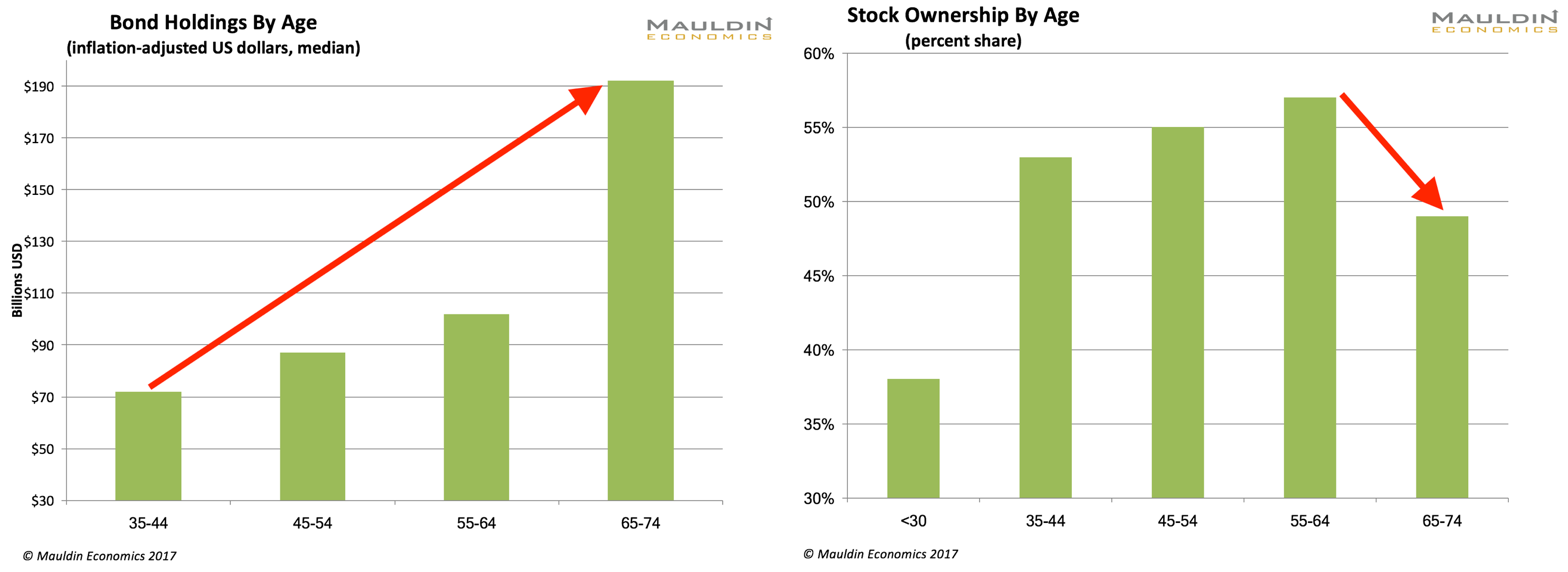Boomers Are Turning 71—These 4 Charts Paint A Perfect Storm It Will Set Off For Investors
Few investors understand the magnitude of the looming demographic crisis and its ramifications.
The first Baby Boomers turned 70 last year. At the same time, the US fertility rate is at its lowest point since records began in 1909.
This disastrous combination means by 2030, those aged 65 and older will make up over 20% of the population.

Source: Mauldin Economics
In the meantime, the percentage of working-age cohorts are in decline. Combined together, these trends create a perfect demographic storm for the US economy.
Here’s why.
A Deflationary Environment
The chart below shows that growth in the working-age population has been a leading indicator of nominal GDP for decades.

Source: Census Bureau, Bureau of Economic Analysis
One of the reasons for that is that spending drops on average by 37.5% in retirement. Given that consumption accounts for 70% of US economic activity, this is a major deflationary force.
Economic growth and corporate profits go hand in hand. Which means this trend will cut down company earnings and, in turn, investors’ returns will go down further.
That’s not yet the worst news. Along with declining profits, America’s aging population has ever more profound implications for investors.
A Big Shift in Financial Markets
According to BlackRock, the average Boomer has only $136,000 saved for retirement. Even assuming 7% returns—when they’re more like 2%—it’s a yearly income of only $9,000. That’s $36,000 shy of the ideal retirement income.
This huge funding gap in pensions means Boomers will be forced to look for income elsewhere. Historically, that has come from bonds.
The research shows once you hit the age of 65, you go through the most profound asset class shift since you were in your 30s. You start to trim your equity and start to raise your bond exposure.

Source: Mauldin Economics
…click on the above link to read the rest of the article…